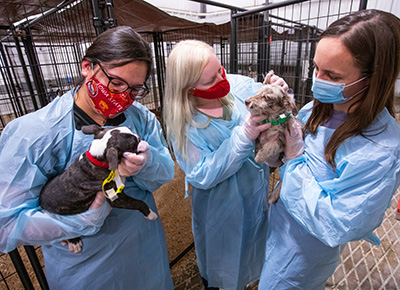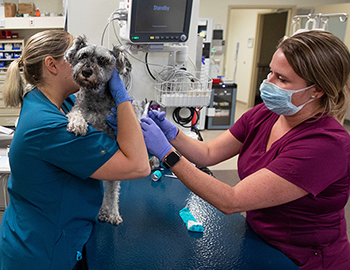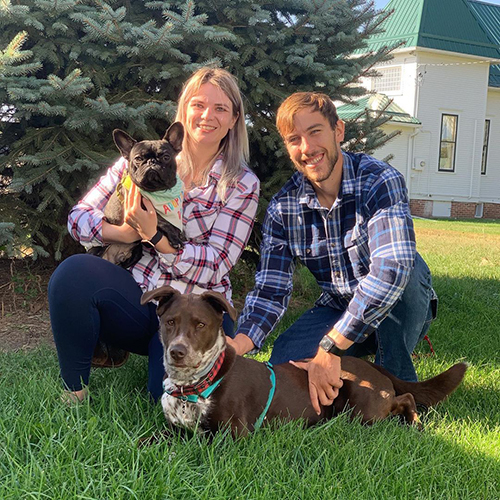A Big Assist

When a federal court judge ordered the surrender and removal of more than 500 dogs and puppies from a USDA licensed breeder in Iowa, one of the many organizations that stepped were the student, faculty and staff volunteers from the College of Veterinary Medicine. “I knew that this would be a big ‘all hands on deck’ situation and I wanted to help where I could,” said Melissa Garcia Rodriguez, a third-year student. “The dogs had the potential to be in bad shape so I wanted to provide my skills as a veterinary student to help the veterinarians and be there for the dogs.” The students assisted in administering rabies vaccinations while also conducting low-stress handling and doing a few procedures. They also helped unload kennels, safely removing the dogs, assisting with examinations and drawing up vaccinations.





